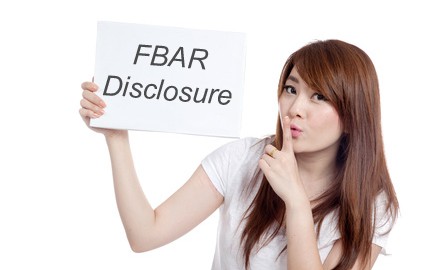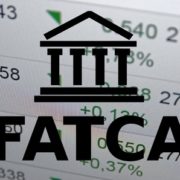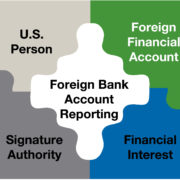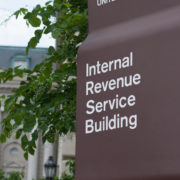Offshore Disclosure of Foreign Financial Accounts: Deciding What Road to Take
Disclosing Offshore Bank Accounts
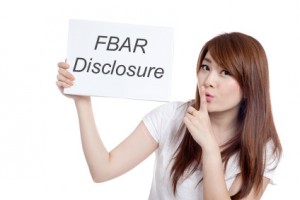 Taxpayers who are considering coming out of the shadows to disclose their offshore accounts need to be extremely careful when deciding what road to take. Too often, taxpayers simply default to the cheapest method (streamlined procedures) when deciding how to proceed in making an offshore disclosure without considering the significant financial and criminal risks associated with choosing the wrong method.
Taxpayers who are considering coming out of the shadows to disclose their offshore accounts need to be extremely careful when deciding what road to take. Too often, taxpayers simply default to the cheapest method (streamlined procedures) when deciding how to proceed in making an offshore disclosure without considering the significant financial and criminal risks associated with choosing the wrong method.
In addition, taxpayers who have elected to opt out of the Offshore Voluntary Disclosure Program rather than paying the miscellaneous offshore penalty have found that opting out was ill-advised. The rationale for opting out is the belief that the taxpayer will somehow be able to convince the IRS that his or her failure to (i) report their financial accounts on FinCEN Form 114 (FBAR) (ii) make the appropriate disclosure on Schedule B; and (iii) report the income derived from their foreign financial assets was not willful. While justification does exist for opting out of the OVDP in select cases, by and large, most taxpayers are best served by staying in the program and securing a Closing Agreement.
Other taxpayers have opted for using the streamlined procedures for disclosing their foreign financial accounts, based entirely upon 0% to 5% penalty, without carefully considering the veracity of their representations under oath or the likelihood that their statements will be vetted.
Taxpayers have also placed undue reliance upon the reasonable cause defense or the advice of a tax professional defense to support their certifications of non-willfulness, without fully understanding whether these defenses are legitimately available to them. Unfortunately, many of these taxpayers now face the imposition of the willful FBAR penalty, and in extreme cases, criminal prosecution.
The Government has become increasingly aggressive in both the assessment of the willful civil FBAR penalties as well as in the prosecution of those who make false statements. Just ask Brain Nelson Booker, who was recently charged by the Department of Justice for, among other things, filing a false document under 26 U.S.C. § 7206 (1) when he submitted a certification of non-willfulness in October 2015 as part of a submission using the Streamlined Domestic Offshore Procedures. The DOJ alleges that Booker “falsely certified that he met all the eligibility requirements for treatment under the streamlined procedures, and falsely claimed, among other things, that his failure to report all income pay all tax, and submit all required information returns, including FBARs, was due to non-willful conduct.” Mr. Booker is now a fugitive from Justice and has since taken up residency in a non-extradition jurisdiction.
Likewise, Taxpayers who either opted out of the OVDP or rolled the dice with the streamlined procedures, and in doing so, stretched the truth in their certifications, are quickly learning that the IRS has seen it all and can easily discern when a taxpayer is lying or stretching the truth. The IRS is making good on its pledge to carefully scrutinize opt out and streamlined disclosure cases. They will go after those who have been less than candid.
There are common characteristics in both criminal and civil FBAR cases including (i) the failure to report foreign financial assets; (ii) a “no” response to question 7(a), in Part III of Schedule B as to the existence of an interest in or signatory authority over a foreign financial account; (iii) the failure to report the income associated with the foreign financial accounts; and (iv) a signed income tax return. These characteristics are generally present in FBAR cases where the taxpayer self-prepared his or her return as well as in cases where the return was prepared by a third party.
The presence of the above common characteristics is by no means all inclusive. Nevertheless, in nearly all cases, these characteristics have been sufficient to sustain the assessment of non-willful FBAR penalties, despite taxpayer claiming of reasonable cause or reliance upon the advice of professionals as a defense.
More importantly, the presence of these factors is now routinely cited by the Courts in sustaining the assessment of willful FBAR penalties as well as in criminal prosecutions.
Accordingly, a decision to make an offshore disclosure as well as the method of disclosure is a serious decision that must be carefully evaluated, particularly in light of the closure of the OVDP in September 2018. Likewise, those who have participated in the OVDP need to carefully consider the financial and potential criminal risks associated with opting out. In this regard, it is necessary to analyze the total costs under the OVDP as well as the potential down side risks associated with opting out.
Factors to consider when deciding which type of offshore disclosure to make
Since each case will differ, a decision as to what type of offshore disclosure to make will depend on a many factors including, but not limited to:
- Whether the taxpayer self-prepared his or her tax returns or whether the returns were prepared by a CPA.
- Whether the taxpayer checked “no,” in response to disclosure question 7(a), Part III, Schedule B as to the existence of an interest in or signatory authority over a foreign financial account.
- If the taxpayer failed to file FBARs, whether he nonetheless reported all of the income derived from his or her foreign assets.
- The extent to which the taxpayer sought to evade Government detection of his or her foreign financial assets and any income associated therewith (nominee entity, foundation or straw person).
- Any special arrangement the taxpayer has or had with the bank (unnumbered account, hold mail, nominee officers and directors, etc.).
- The number and size of foreign financial accounts.
- The length of time the foreign financial accounts have been open.
- The purpose for opening the accounts.
- Whether the foreign financial accounts are active (regular deposits and withdrawals, or atm use) or dormant (no activity in account for extended period of time).
- The taxpayer’s efforts to familiarize himself with the FBAR filing and return disclosure requirements.
- The taxpayer’s efforts to ascertain the selected tax professional’s competence in connection with the FBAR financial reporting requirements and disclosure rules.
- Where the taxpayer used a third party preparer, whether he or she completed a tax organizer.
- The existence of any written communications between the taxpayer and third party tax return preparer related to the existence of foreign financial accounts and the reporting requirements.
- Whether the taxpayer provided the third party return preparer with sufficient documentation from which the return preparer could determine FBAR filing requirements and other return filing obligations.
- Whether the taxpayer sought and obtained written advice from a tax attorney, independent from any advice he or she may have received from the tax return preparer.
- The taxpayer’s level of education and sophistication.
- The source of funds deposited into the accounts; (inheritance, after tax savings, etc.).
- Whether the source of the funds in the foreign financial accounts is the by-product of legal vs criminal activity.
- Taxpayer’s history with the IRS.
- Whether the taxpayer has prior FBAR violations.
- Whether a civil fraud penalty has ever been assessed against the taxpayer.
- The existence of a current or past civil or criminal investigation by the IRS or other Government agency (i.e. SEC).
- Whether the taxpayer was ever convicted of a felony.
The preceding represents some, but certainly not all, of the factors to be considered when deciding which method of disclosure to be used, or whether to opt out of the OVDP. Taxpayers are best served when they consult with a seasoned tax attorney, who has both the knowledge and experience with offshore disclosures. While some may be tempted to use a CPA or enrolled agent, these professionals generally lack the ability to understand the legal and financial implications associated with such a decision. Nor do they understand the discovery and the rules of evidence. In fact, these professionals often-times become fact witnesses in both civil and criminal FBAR cases.
The takeaway is simple, offshore disclosures are becoming much more complicated due to the changing legal landscape as well as the new rules related to voluntary disclosure practice that were announced in November of 2018. Equally important, the Government has had a succession of FBAR victories, both civil and criminal, and as such, is now emboldened.

